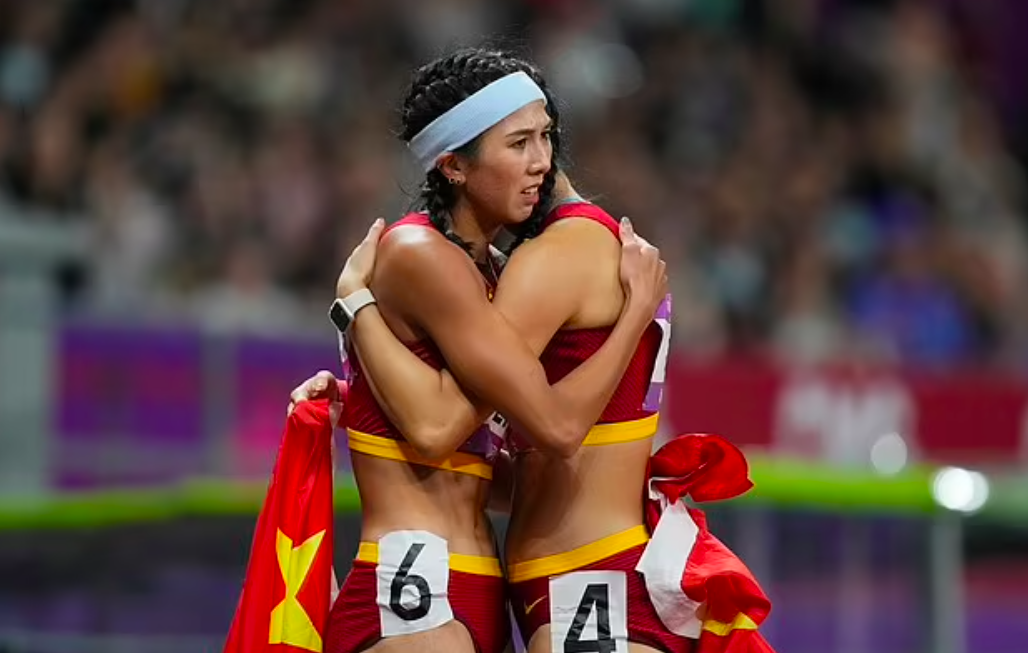The Asian Games, a quadrennial multi-sports competition, boasts 45 nations participating in each of its events. With the games being held in mainland China, some have raised concerns about politics and its place in the sports event.
On Oct. 4th, China censored a photo of two female track athletes that made an inadvertent reference to the Tiananmen Square massacre. Wu Yanni and Lin Yuwei form the number 64, a common way to allude to the incident; the 6 and 4 represent the 4th of June. The photo depicts the two hurdlers hugging each other after completing their 100-meter hurdle race, in which Lin Yuwei got first place. Fans immediately posted photos on social media platforms, only to have their posts edited with a big grey box covering the athlete’s numbers.
“Although I didn’t tune into the entire Asian Games, I found the soccer event especially interesting,” Mr. Gallahgher, the varsity track and field coach, said. “The banning of controversial political topics was certainly expected; why would the host of the competition entertain bad press?”
Unlike previous years, China went out of its way to invite Taiwan (Chinese Taipei) to participate in their events. This was all under the condition that Taiwanese athletes play in the absence of a national flag. For nearly a decade, China has mandated that Taiwan identify themselves as Chinese Taipei, a region of China, for them to compete in any international sporting events. The issue of Taiwan’s sovereignty remains a contentious topic, with China asserting that the land is theirs. As a considerable world power, China has prevented Taiwan from entering international competitions under its national flag since 1989. This tacit rule seems to have implemented itself into all major sports meets as a result of China’s rise in political influence.
“These massive sports events serve a political purpose above anything else,” Chenxuan Jin (10), a Chinese sports enthusiast, said. “These international sports competitions are mediums in which nations can get back at their opposition; in China’s case, they control the press to their advantage in order to brand themselves positively on the international stage.”
Interestingly, in the men’s soccer quarterfinals played on Oct. 1, the North Korean team received six yellow cards for its rough play in falling 2-1 to Japan. The most widely accepted explanation for such animosity traces back to the economic and political tensions between the two nations, with their relationship being tainted with mistrust for the past millennia. In the midst of all the enmity, the North Korean 10-meter running target team for shooting, refused to attend the award ceremony to receive their silver medal because the South Korean team topped them by placing 1st, drawing a thin line between sports and politics.
“Honestly, I’m not very surprised,” Joonho Kim (10), a varsity track and field athlete, said. “North Korea has been very aggressive recently when it comes to sports; it’s understandable because these international sports competitions are one of the only mediums of interaction with the outside world.”
With the Asian Games wrapping up, Korea ended with a total of 199 medals, 42 gold, 59 silver, and 89 bronze. South Korea displayed great athletic prowess and the ability to fare with the underlying pressure of international “sports-politics” in the 2023 Asian Games. Whether or not this trend continues, only time will tell.


